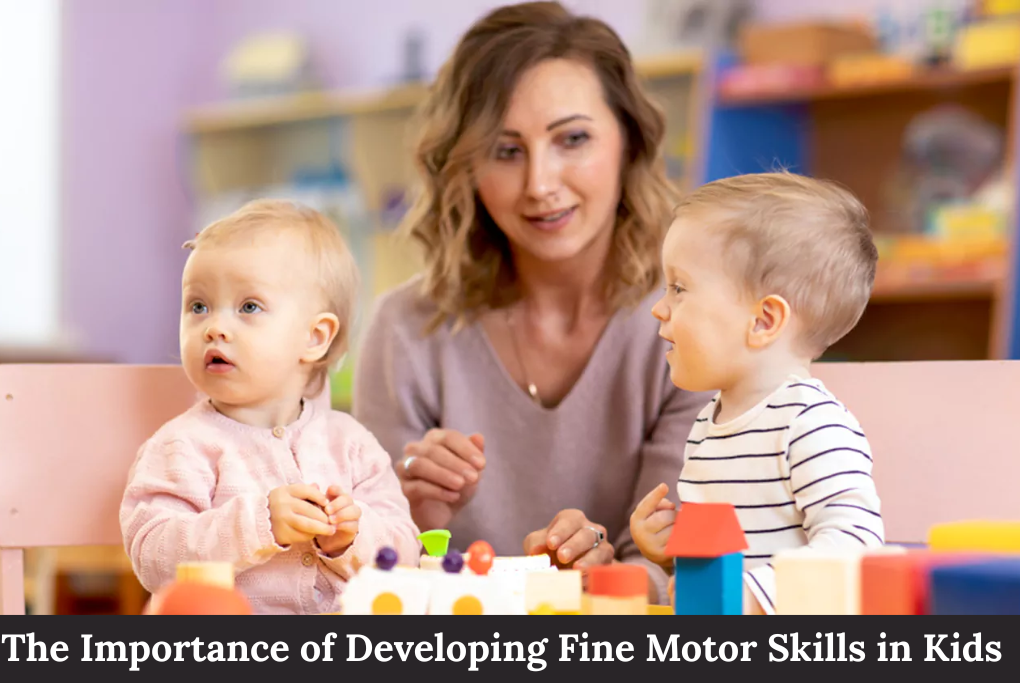As a parent, you want your child to grow into a healthy, confident, and capable individual. One crucial aspect of childhood development is fine motor skills, which enable kids to perform precise movements and tasks. In this article, we’ll explore the importance of developing fine motor skills in kids, the repercussions of not having developed these skills, and provide tips and strategies for parents to improve fine motor skills in their children.
What are Fine Motor Skills?
Fine motor skills refer to the ability to perform precise movements and tasks, such as writing, drawing, and using small objects. These skills involve the coordination of small muscle groups, such as those in the hands and fingers, and are essential for everyday activities.
Why is it Important to Develop Fine Motor Skills?
Developing fine motor skills is crucial for kids’ physical, emotional, and cognitive development. Here are some reasons why:
Improved Academic Performance: Fine motor skills are essential for academic tasks, such as writing, drawing, and using scissors.
Enhanced Creativity: Fine motor skills enable kids to express their creativity through art, craft, and other activities.
Better Hand-Eye Coordination: Fine motor skills are linked to hand-eye coordination, which is essential for physical activities and sports.
Increased Confidence: Mastering fine motor skills can boost kids’ confidence and self-esteem, enabling them to participate in activities with greater ease.
Repercussions of Not Having Developed Fine Motor Skills
If kids don’t develop fine motor skills, they may face several challenges, including:
Difficulty with Academic Tasks: Kids who struggle with fine motor skills may find it challenging to complete academic tasks, such as writing and drawing.
Low Confidence: Poor fine motor skills can lead to low confidence and self-esteem, making kids more likely to avoid activities that require fine motor skills.
Difficulty with Everyday Activities: Fine motor skills are essential for everyday activities, such as dressing and feeding, and kids who struggle with these skills may require additional support.
Effects of a Lack of Fine Motor Skills in Different Age Groups
The effects of a lack of fine motor skills can vary depending on the age group:
2-5 years: Kids in this age group may struggle with basic fine motor skills, such as using utensils and dressing.
5-10 years: Kids in this age group may find it challenging to complete academic tasks, such as writing and drawing.
10+ years: Kids in this age group may struggle with more complex fine motor skills, such as playing musical instruments or crafting.
Games, Puzzles, and Activities to Improve Fine Motor Skills
Here are some games, puzzles, and activities that can help improve fine motor skills in kids:
Puzzles: Puzzles, such as jigsaw puzzles or brain teasers, can help kids develop problem-solving skills and fine motor skills.
Playdough: Playdough can help kids develop fine motor skills, such as rolling, shaping, and molding.
Finger Painting: Finger painting can help kids develop fine motor skills, such as grasping and manipulating paintbrushes.
Crafting: Crafting activities, such as cutting and pasting, can help kids develop fine motor skills and creativity.
Strategies to Improve Fine Motor Skills in Children
Here are some strategies to improve fine motor skills in kids:
Practice Regularly: Encourage kids to practice fine motor skills regularly, using games and activities that promote skill-building.
Make it Fun: Make fine motor skill development fun and engaging, using games and activities that kids enjoy.
Provide Opportunities for Practice: Provide opportunities for kids to practice fine motor skills, such as drawing, writing, and crafting.
Be a Role Model: Be a role model for fine motor skill development, engaging in activities with your kid and promoting a healthy, active lifestyle.
Tips for Parents
Here are some tips for parents to help improve fine motor skills in their kids:
Encourage Creativity: Encourage kids to express their creativity through art, craft, and other activities.
Provide a Variety of Activities: Provide a variety of activities that promote fine motor skill development, such as puzzles, playdough, and crafting.
Be Patient: Be patient and supportive, recognizing that fine motor skill development can take time and practice.
Make it a Family Affair: Make fine motor skill development a family affair, engaging in activities with your kid and promoting a healthy, active lifestyle.
Additional Tips for Parents
Here are some additional tips for parents to help improve fine motor skills in their kids:
- Use Everyday Activities: Use everyday activities, such as dressing and feeding, to help kids develop fine motor skills.
- Encourage Independence: Encourage kids to perform tasks independently, such as dressing and undressing, to help develop fine motor skills.
- Provide Feedback: Provide feedback to kids on their performance, helping them to adjust their movements and improve their fine motor skills.
- Make it Challenging: Make activities challenging for kids, gradually increasing the difficulty level as they develop their fine motor skills.
Common Challenges and Solutions
Here are some common challenges that parents may face when trying to improve fine motor skills in their kids, along with some potential solutions:
Lack of Motivation: Encourage kids to find activities that they enjoy, and provide positive reinforcement and support.
Limited Access to Resources: Look for free or low-cost resources in your community, such as parks or playgrounds, where kids can practice fine motor skills.
Physical Limitations: Consult with a healthcare professional or occupational therapist to develop a plan that meets your kid’s needs and abilities.
The Importance of Early Intervention
Early intervention is critical for kids who are struggling with fine motor skills. Research shows that kids who receive early intervention and support are more likely to develop the skills they need to succeed in physical activities and other areas of life.
Conclusion
Fine motor skills are essential for kids’ physical, emotional, and cognitive development. By providing opportunities for practice, making it fun, and being a positive role model, parents can help their kids develop the fine motor skills they need to succeed.

